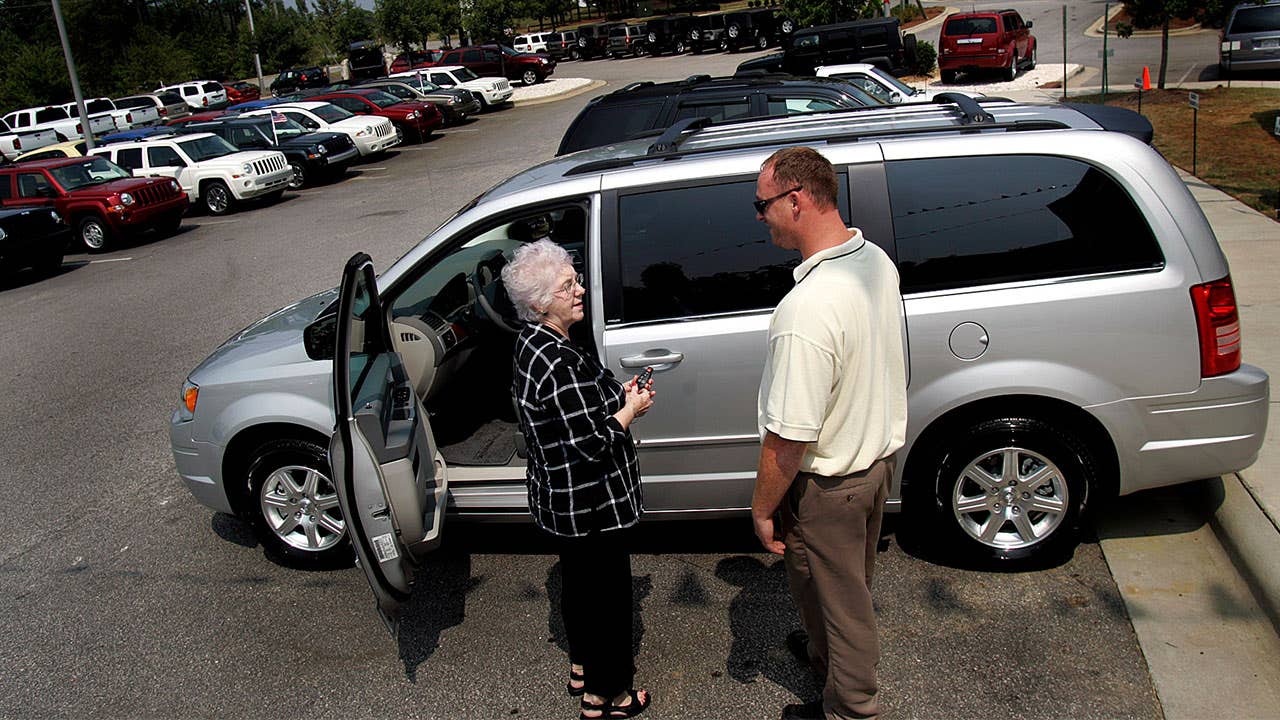Pros and cons of taking over a car lease

The Bankrate promise
At Bankrate we strive to help you make smarter financial decisions. While we adhere to strict , this post may contain references to products from our partners. Here's an explanation for .
Key takeaways
- An automobile lease takeover’s benefits include allowing short-term access to the car, possibly lower monthly payments or even cash incentives from the original lessee.
- Before taking over a lease, consider drawbacks like added fees, more wear and tear on the car, mileage limitations and no chance of renegotiating after you take on the lease.
- Visit websites like Swapalease, LeaseTrader and QuitALease to find people looking to hand over their car lease.
If you want to try out a certain car or only need a car for the short term, taking over car lease payments could be a good option to get behind the wheel. Third-party websites can help you connect with someone looking to end their lease early. However, you should be aware of additional fees and other drawbacks before taking over a car lease.
Advantages of a car lease takeover
Assuming a car lease has clear benefits when you want to drive a newer model car for a short period.
Vehicle availability
Leases typically last two or three years. Finding a good deal on a newer car that isn’t the current model year can be challenging. But you can likely get a fairly new car through a lease assumption.
Short-term lease
While the average leasing contract lasts two or three years, a lease assumption ends sooner. This shorter period allows you to test drive a vehicle without signing a longer-term contract. It is rare to find that timing available through traditional leasing outlets.
Cash incentives
Many drivers on lease-swapping sites are eager to get their vehicles off their hands. The original lessee may offer a cash bonus. They may also offer to cover any transfer fees a leasing company charges, saving you hundreds of dollars. Negotiate with the lessee to get the best deal possible.
Lower monthly payments
If the original lessee has excellent credit and made a large down payment, their monthly payment is likely low. You will benefit from their terms since you will be taking on that monthly payment as-is.
You may have a higher lease payment if the original lessee had poor credit or made a small down payment. To see if the car lease takeover payment makes sense, try calculating how much the car payment and auto loan rates would be if you outright bought it or leased it yourself to compare.
You can make use of our auto loan calculator or auto lease calculator. You can also compare against Edmunds to see current lease deals on that make and model of car.
Disadvantages of an automobile lease takeover
Low car payments and the flexibility of a short-term car lease may be tempting, but before you assume a lease, be aware of the potential pitfalls.
No renegotiation
Typically, not negotiating a lease agreement is a mistake to avoid. But the lease you take over is the lease you get.
You cannot negotiate the lease terms the original lessee agreed to. If their credit score was low, you might be stuck with a higher monthly payment than you would have received yourself. You may also have a higher lease-end purchase price than you would otherwise get. Make sure to go in knowing the basics of a car lease agreement so you know what you are getting is fair.
Limited mileage
Taking over a lease means you must stick to the original mileage limits on the car lease agreement. Leases often limit drivers to 12,000 or 15,000 miles per year, according to the Federal Reserve.
Exceeding this limit could cost you — overage fees range from 10 to 25 cents per mile. Estimate how many miles you will drive before the lease expires to ensure you won’t have to pay a penalty. And make sure the original lessee hasn’t already incurred mileage overage fees.
Potentially high wear-and-tear costs
If the previous driver did not maintain the vehicle, you will be stuck with the wear-and-tear fees. Just like any used car, see the vehicle in person and have the car inspected before you agree to take over the lease. If there is significant wear, see if the original lessee will cover the fees as part of your transfer.
Additional costs
Three primary fees come with a lease takeover: lease transfer, credit application and disposition fees. According to Swapalease, you can expect lease acquisition fees to cost anywhere from $395 to $895. The acquisition fee may have been bundled into the monthly lease payment. Be sure to learn the specifics of these fees before agreeing to the lease assumption. Also, look up lease regulations in your state, as some states require the same taxes for a lease takeover as they would for a purchase.
How to assume a car lease
Lessees who want to hand over their leases often list their leases on websites like Swapalease, LeaseTrader and QuitALease. You can also reach out to the leasing company. They may be able to give recommendations or even help connect you with a potential lessee.
The bottom line
If you decide to assume a lease, remember that the responsibility you are taking over is greater than a typical auto lease due to the history of the original driver. You will be responsible for the rest of the payments on the car, including any damage or fees incurred by the original lessee. Shop around and compare different options before signing any agreements. Before you take over a car lease, check the vehicle history and calculate what you’d pay if you bought or leased the car yourself.
Related Articles



